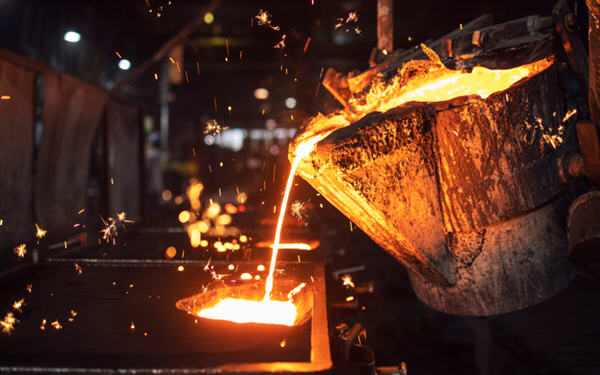
Muzhu Mining Ltd. (CSE: MUZU)
Creating lasting wealth by developing gold and silver properties with near-term mining potential

On the second anniversary of the outbreak of the Russian-Ukrainian war, U.S. President Joe Biden announced on the 23rd that he would impose a new round of more than 500 sanctions on Russia in order to increase pressure on Moscow. The European Union and the United Kingdom have also joined the new round of sanctions against Russia.
Two base metals, aluminium and nickel, have risen this week on news of impending US sanctions against Russia. However, the two base metals were not involved in Friday’s sanctions for the time being.
By Friday’s close, aluminium prices were down 1.1%, while nickel narrowed the gains it had previously recorded, rising just 0.3%.
According to Bloomberg reported on the 23rd, the White House issued a statement on the same day, said U.S. President Joe Biden announced more than 500 new sanctions against Russia, sanctions will target individuals related to the imprisonment of Russian opposition figure Alexei Navalny, as well as Russia’s financial sector, the defence industrial base and procurement network.
In addition, the U.S. will impose new export restrictions on nearly 100 entities that provide support to Russia and will move to further reduce Russian energy revenues.
Ewa Manthey, Commodity Strategist at ING Groep NV, said that with no sanctions in place, the focus of the aluminium market has returned to market fundamentals. Overall, global economic uncertainty will continue to weigh on the outlook for aluminium. This includes a tough macro backdrop in China, higher borrowing costs and uncertainty over the Fed’s easing cycle.
In contrast, nickel has performed a bit firmer. Nickel is still on track to gain more than 6 per cent this week, its biggest one-week gain since July last year. Ole Hansen, commodities strategist at Saxo Bank, suggested that nickel’s rally may have been driven by earlier short-covering by hedge funds.
However, Manthey noted that the nickel market remains in oversupply and it was only in December last year, when the UK announced restrictions on the Russian metal, that the underlying metal got some breathing. In legislation published by the UK government, new restrictions were introduced stating that Britons “must not acquire, directly or indirectly, metals originating in or located in Russia”. The document lists copper, nickel, aluminium, lead, zinc, tin and cobalt as subject to the restrictions.
Russia is a major producer of aluminium, copper and zinc. The London Metal Exchange (LME) has restricted shipments of Russian metals to its UK warehouses following previous government sanctions and trade restrictions.